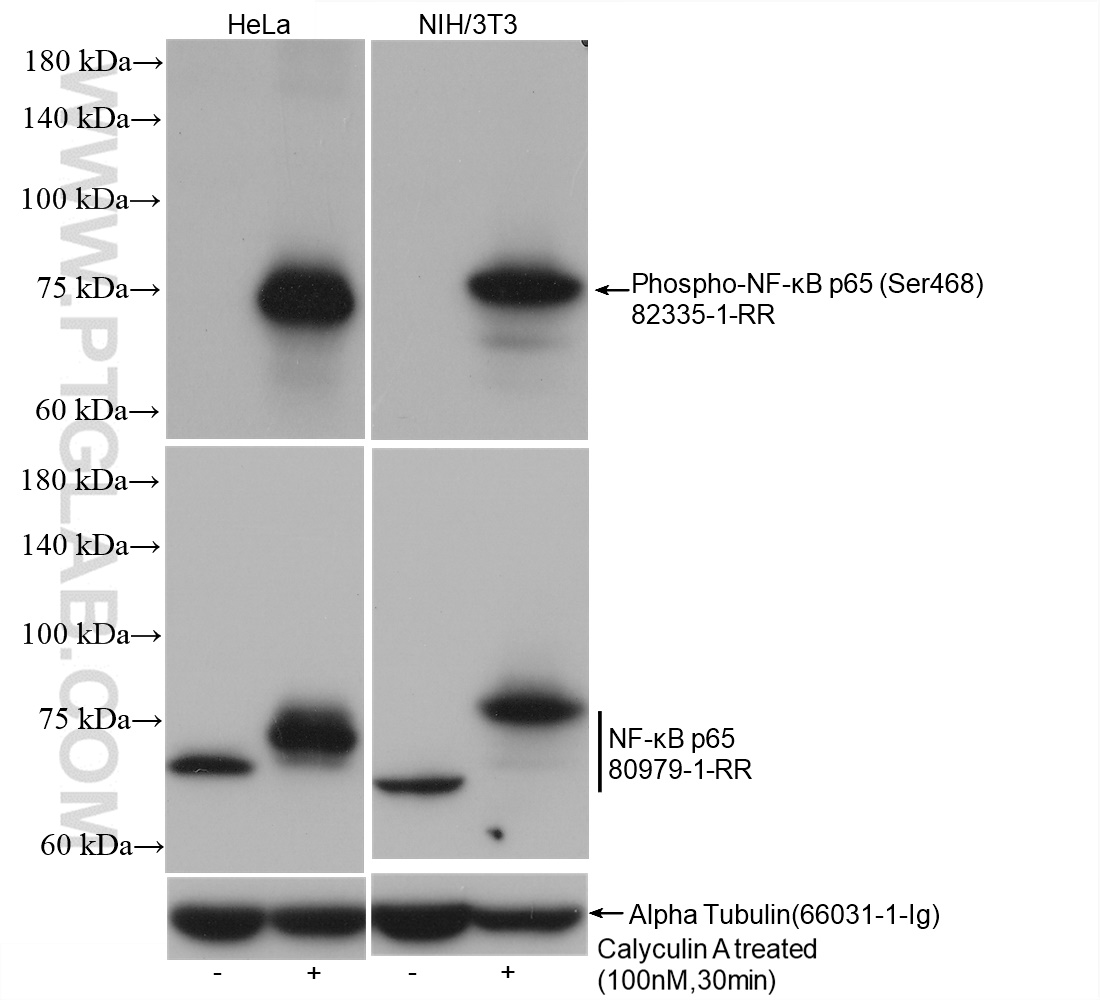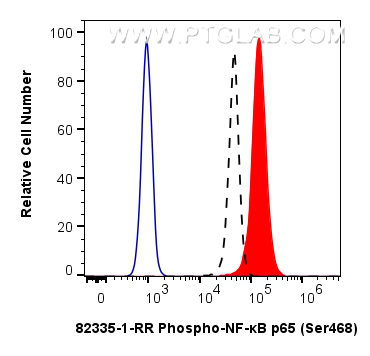验证数据展示
产品信息
82335-1-PBS targets Phospho-NF-κB p65 (Ser468) in WB, FC (Intra), Indirect ELISA applications and shows reactivity with human, mouse samples.
| 经测试应用 | WB, FC (Intra), Indirect ELISA Application Description |
| 经测试反应性 | human, mouse |
| 免疫原 | Peptide 种属同源性预测 |
| 宿主/亚型 | Rabbit / IgG |
| 抗体类别 | Recombinant |
| 产品类型 | Antibody |
| 全称 | v-rel reticuloendotheliosis viral oncogene homolog A (avian) |
| 别名 | NF-κB (Ser468), NF-κB p65 (Ser468), p NF-κB, p NF-κB (Ser468), p NF-κB p65 |
| 计算分子量 | 65 kDa |
| 观测分子量 | 75 kDa |
| GenBank蛋白编号 | BC011603 |
| 基因名称 | NF-κB p65 |
| Gene ID (NCBI) | 5970 |
| 偶联类型 | Unconjugated |
| 形式 | Liquid |
| 纯化方式 | Protein A purification |
| UNIPROT ID | Q04206 |
| 储存缓冲液 | PBS only , pH 7.3 |
| 储存条件 | Store at -80°C. The product is shipped with ice packs. Upon receipt, store it immediately at -80°C |
背景介绍
Nuclear factor kB (NF-kB) is a collective term for a small family of dimeric transcription factors [comprising p65 (RelA) and RelB, c-Rel, p50/p105 (NF-κB1), and p52/p100 (NF-κB2)]. All NF-κB proteins share a Rel homology domain (RHD), which is responsible for DNA binding and dimerization. Only p65, RelB, and c-Rel contain potent transactivation domains within sequences from the C-terminal to the RHD. Exterior signals lead to the phosphorylation and degradation of the inhibitory complex IκB, which is modulated by the IκB kinase (IKK), and its degradation allows for the release of the typical NF-κB heterodimer, p65/p50, to translocate into the nucleus. NF-κB binds to its cognate DNA elements and can transcriptionally activate different target genes among which 200-500 genes have been implicated in cell survival/apoptosis, cell growth, immune response, and inflammation.

